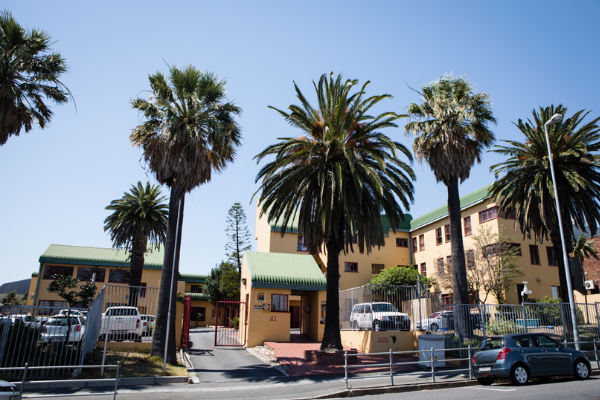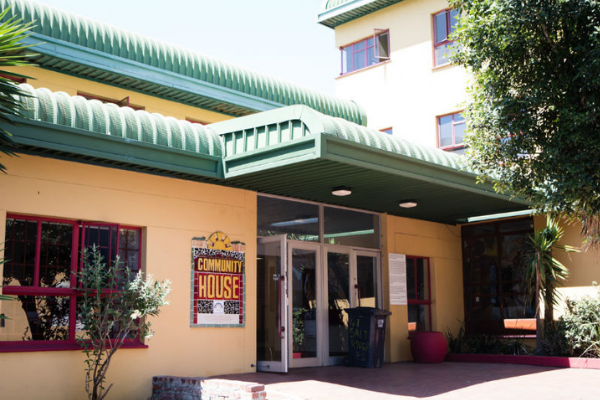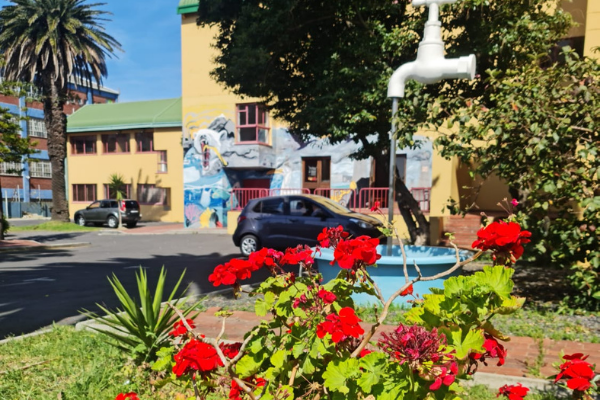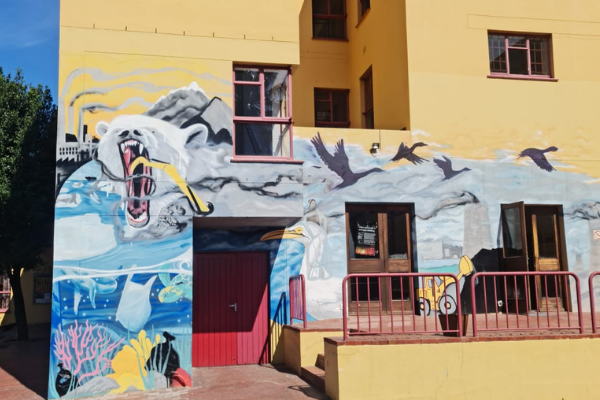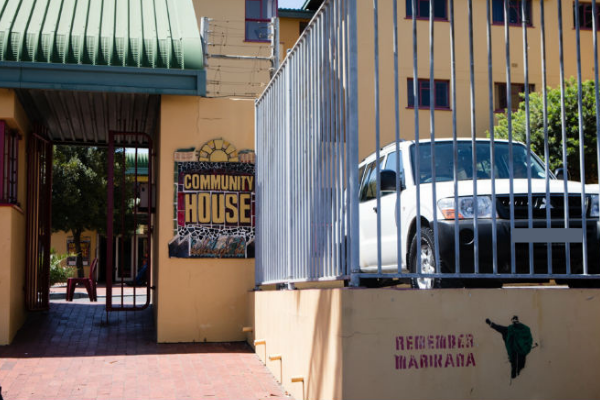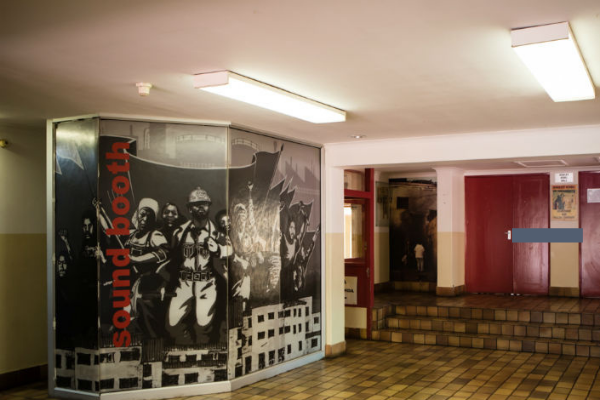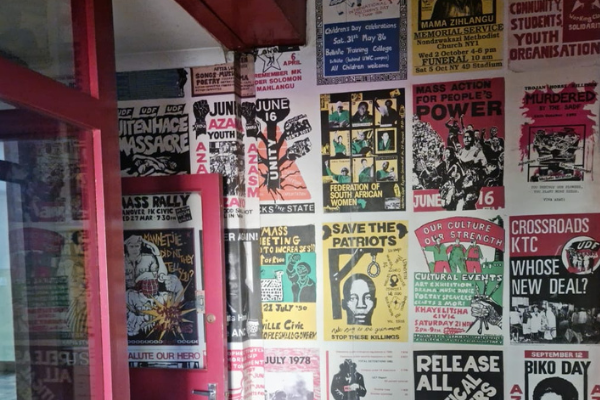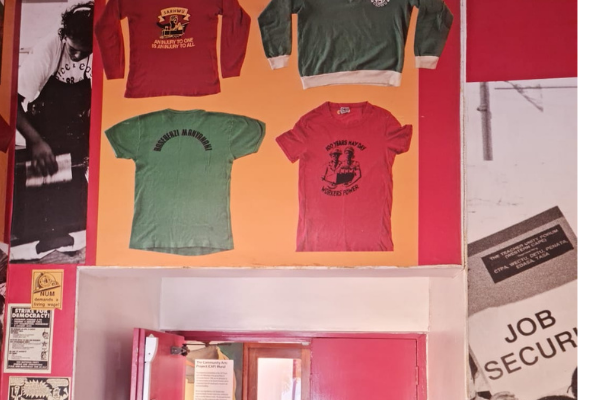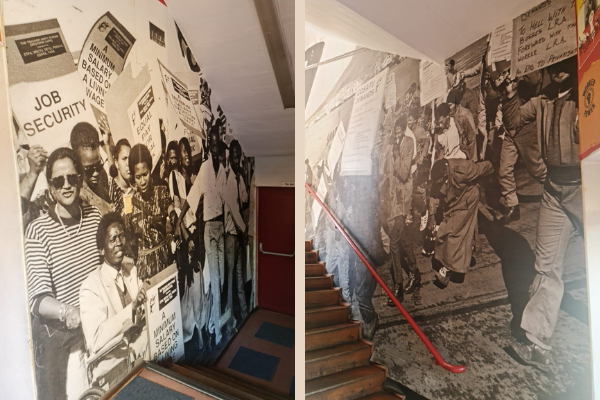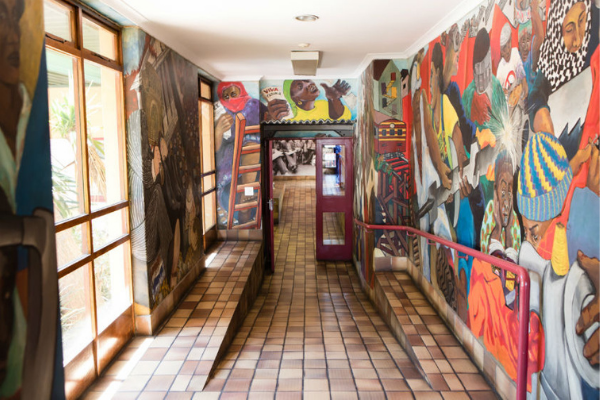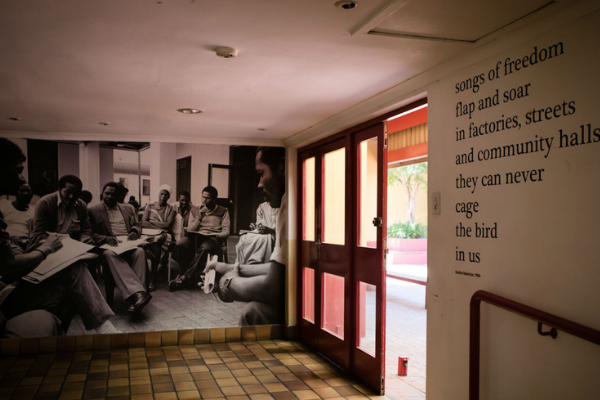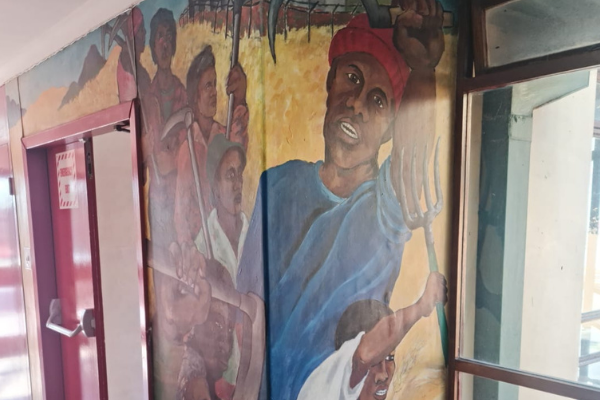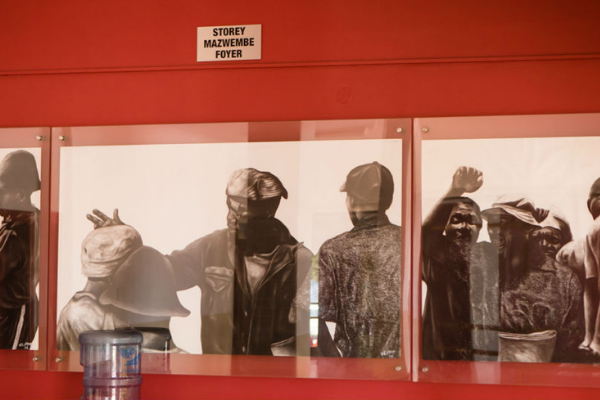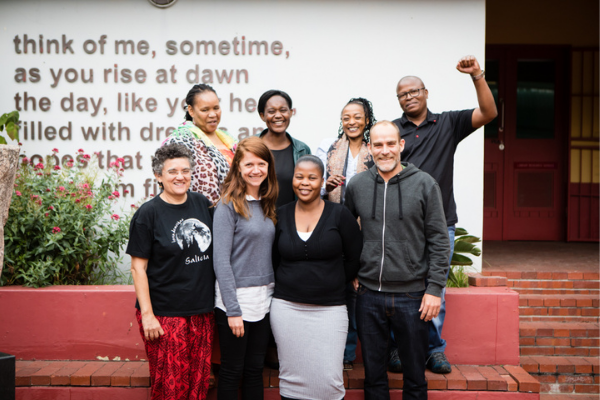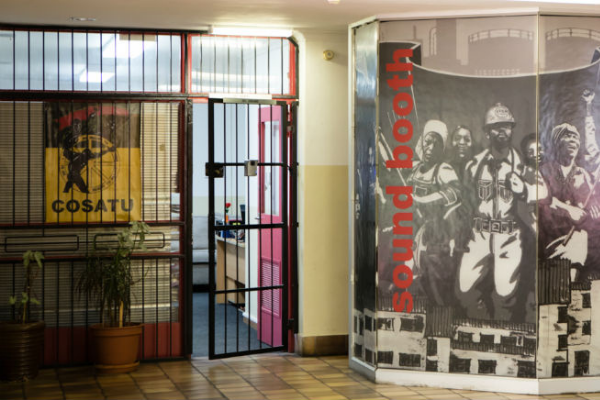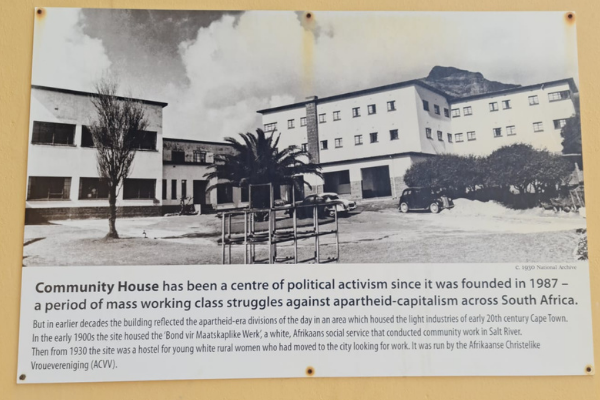Community House
A Site of Activism in Cape Town
Community House in Salt River, Cape Town, is a living heritage site with a rich history from the 1980s. Labour Research Service (LRS) is a longstanding tenant of Community House, which we see as symbolising our longstanding commitment to supporting trade unions in South Africa.
In the mid-eighties, there was an urgent need for a base from which trade unions, community groups and service organisations could spearhead the struggle for liberation at a time of heightened repression under the apartheid regime. Seeing this need, the Western Province Council of Churches (WPCC) and the Social Change Assistance Trust (SCAT) purchased and transformed a dilapidated auto workshop in Salt River. Salt River, with its thriving light metal and textile factories, birthed industrial trade unions in the Western Cape.
The renovated Community House was officially opened on 21 August 1987, but faced adversity just eight days later when apartheid agents bombed it. Despite this setback, the building became a solid base for collective mobilisation for various organisations. Community House was a refuge for worker activists, providing a space to strategise for better wages, conditions and equality.
In the late 1980s, major mass organisations were banned and restricted. In response, the Mass Democratic Movement launched a nationwide campaign against these restrictions. In September 1989, Community House buzzed with activity as activists prepared to march in the historic 'Purple Rain', which helped to overturn the bans on political organisations in February 1990. After 1994, the focus of trade unions shifted to advocacy for equal social and economic opportunities in South Africa.
Community House was declared a provincial heritage site in 2010. It still supports the labour movement and is home to trade unions and other social activists. Large murals commemorating labour and community activists adorn the walls, halls and foyers. These murals vividly depict the struggles of those imprisoned, tortured and killed by the apartheid regime, as well as planning and launching various workers' strikes and campaigns. The venue has been the site of momentous events, from the release of political prisoners from Robben Island to being the nerve centre of the ANC's first election campaign in 1994.
True to the vision of its founders, Community House remains a vibrant centre for social change and community action, hosting numerous events throughout the year. For details on facilities and venue booking, visit https://communityhouse.org.za/
Essential Resources
